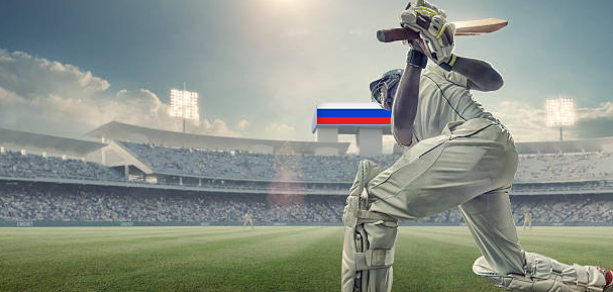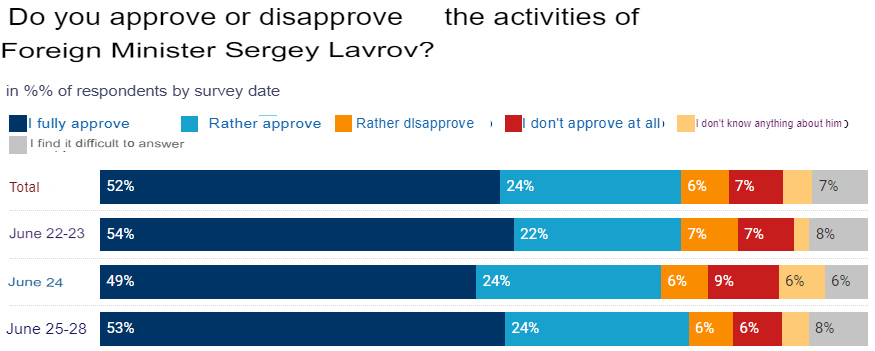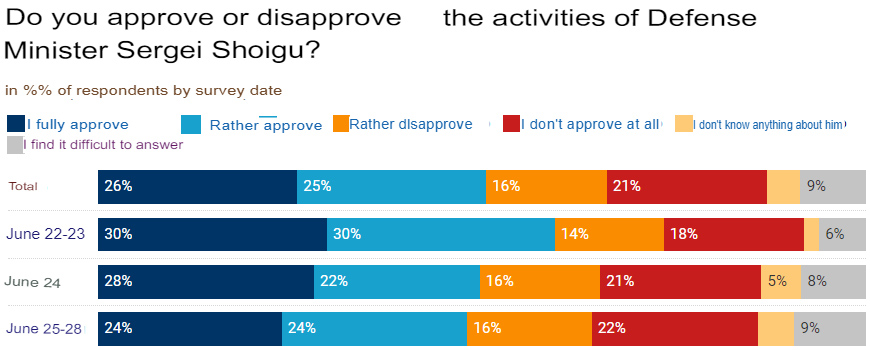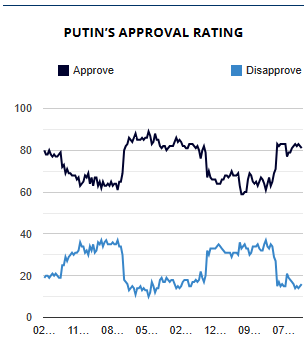 [1]
[1]
By John Helmer, Moscow
@bears_with [2]
Russian regime change is war – it isn’t cricket.
Between the US, the UK, and Russia there have been regime-changing games for more than a century now. Thirty years ago Boris Yeltsin was their big hit. They have been bad losers since then. In cricketing terms, the Kremlin regime-changing plan of Alexei Navalny was a googly. The Yevgeny Prigozhin plan was a bouncer. Both have ended as ducks on the scoreboard [3].
Central Intelligence Agency (CIA) Director William Burns has telephoned [4] Sergei Naryshkin of the Foreign Intelligence Service (SVR) to say Prigozhin wasn’t his batsman. In a public speech to a British foundation of twelfth men, Burns said the CIA doesn’t play cricket. “This is an internal Russian affair, in which the United States has had and will have no part,” he claimed [5].
If MI6 was planning and paying for these match failures, they need to pull stumps, leave the field.
There are many Russians, however, who believe the Prigozhin affair, the dismantling of his business operations, and the associated clean-up of the Defense Ministry and Army, have upset President Vladimir Putin’s confidence that his campaign for re-election in the presidential election in six months’ time will be unopposed. The Russian sources point out the shock of the events of June 23-24 is visible on the president’s face. A minority of sources believes he will retire from the race after finding a reliable successor.
“Earlier my sense was he was a sure winner if he won the war,” a Moscow source says. “But the victory is not cleancut and not in sight. I’ve believed that escalation on the battlefield would be a prelude to his retirement and that he wanted to leave a legacy of ‘no compromise’ with the Americans. But then he failed on that by keeping the old economic policy-Central Bank team. Third, the war was a perfect opportunity for him to distance himself from the oligarchs and show clean hands. These are three political failures. He is going to be like [former Kazakh president for life, Nursultan] Nazarbayev now.”
In Russian public opinion polling over the past fortnight there is no evidence that voter confidence in Putin has been shaken; nor in the Russian General Staff’s direction of the battlefield. General Patience [6] has been growing in Russian public support.
According to the independent Moscow pollster Levada Centre [7], “in May, almost half of our respondents (45%) were sure that the conflict in Ukraine would last at least another year – since May 2022, their share has more than doubled. Another quarter see the end of the ‘special operation’ no sooner than in six months. Meanwhile, more than the rhetoric of Russian politicians, it is the course of events that has convinced them of this.”
What has just happened is that confidence in battlefield victory has slipped as a result of the Wagner mutiny. There was public support for the victory in the Battle of Bakhmut, and the role Wagner was advertised to have played in that. Prigozhin destroyed this support by his actions, including the shooting-down of Russian Army aircraft and the killing of its Russian crews.
Levada pollsters were interviewing a nationwide sample from June 22 to 28, and in the results they have been able to track the immediate impact of the armed rebellion as it began, unfolded, collapsed, and resulted in the dismantling of Wagner, and the exposure of Prigozhin as an oligarch-sized crook. “The attitude towards E. Prigozhin during the survey decreased by half: from 58% on Thursday-Friday [June 22-23] to 30% by the beginning of the working week [June 26],” Levada reported [8] on June 29. “In the future, we can expect a further decline in the authority of E. Prigozhin.”
If, in the coming weeks, the Ukrainians commit their reserves, along with NATO weapons in stock, and they are defeated as thoroughly as their offensive in June, Russian public confidence will recover. So will the slip in Levada’s measurement of Defense Minister Sergei Shoigu’s public rating.
The constant is public approval of the president, which is holding above the 80% level of a year ago, and the conviction that the war is the US and NATO’s doing. Defeat on the battlefield in the Ukraine is understood by Russians to be the defeat of the US and the NATO alliance. The first ever.
Levada publishes [9] some of its surveys and poll reviews in English. But in publication on the Centre’s website, many surveys are not translated into English at all. Those which are translated and published lag the Russian releases [10] by at least two weeks.
The latest Putin approval rating chart shows that between March and August of last year, the rating went from 82% to 83%, then dropped to 77% in September. It has revived since then to 83% in February, 82% in March, 81% in June. The Levada Centre has not released its latest measurement following the two Kremlin addresses and other speeches by the president in the wake of the mutiny.
Polling since then indicates that to Russians across the country the most persuasive leaders are Putin and Foreign Minister Sergei Lavrov. At the latter’s 76% approval mark, no Russian foreign minister has ever been so popular.
 [12]
[12]Source: https://www.levada.ru/ [8]
By contrast, Defense Minister Shoigu says very little in public; General Valery Gerasimov, chief of the General Staff, says next to nothing at all. Public recognition of the latter is accordingly low, and Shoigu’s public rating much lower than Lavrov’s.
When they were the targets of Prigozhin’s public attacks in the last stages of the Bakhmut battle and then in the days preceding the mutiny, there was a marginal impact on Shoigu; none recorded for Gerasimov. Shoigu’s rating then slipped, according to Levada’s tracking, from 60% on June 23 to 48% on June 28.
 [13]
[13]Source: https://www.levada.ru/ [8]
In the Levada polling, Shoigu’s approval rating has varied within a narrow range. The measurement of public support for the Army has been more constant over the sixteen months of the special military operation; the range reported by Levada has been from 81% in March 2022 to 83% in June 2023 [14].
For tracking the public impact of the mutiny, Levada polled by direct face-to-face interviews at respondents’ homes across the country, with a total sample of 1,634 aged 18 or older in 137 localities in 50 regions, including Moscow and St Petersburg. The poll results have been summarised [15] this way. “The survey was conducted from June 22 to 28 and in the most general terms recorded the fluctuations in public opinion caused by the events of June 24. The breakdown of responses by dates – before and after the mutiny – shows that what happened hit the attitude of the respondents to S[ergei]. Shoigu and brought down the authority of E[vgeny]. Prigozhin in the eyes of Russians by double. If prior to Saturday’s events Prigozhin seemed to Russians to be a ‘fighter for the truth’, a ‘real leader’, a ‘patriot’, and a victorious general, then by the beginning of the working week [June 26] negative assessments began to prevail in his image: ‘he caused trouble’, ‘went against Russia’, ‘rushes to power’ – the quotes are taken from the answers to an open question. More than half of the respondents consider it permissible to use mercenaries and convicts in military operations. At the same time, against the background of the events of June 24, support for hiring mercenaries has decreased slightly compared to last year’s measurement.”
Levada’s earlier polls have uncovered increasing acceptance on the part of most Russians that the war will be a protracted one; and at the same time also an increase in the numbers of Russians who favour more decisive action on the battlefield. Ukrainian attacks across the border in Belgorod and other regions, the drone attack on the Kremlin, and the Kakhovka dam flooding have intensified public anger at Kiev, the US, and NATO, and raised support for a major Russian offensive – a “big bang”.
“Society today is divided almost equally into two opposing camps. Some want ‘people to stop dying,’ relatives and friends to ‘stop being conscripted’, ‘not to be touched’ themselves, and for ‘all this to end sooner, no matter how.’ For others, however, ‘it is very important how things end,’ ‘if you have started, you might as well fight to the end,’ and in any case ‘the president (government, military) knows better’ – hence the fighting must go on. In May, the number of those in favour of continuing the special operation rose markedly and for the first time since August last year slightly exceeded the number of those in favour of peace talks. More and more people not only expect hostilities to last a long time, but also do not want them to end immediately [7].”
“Anxiety remains diffuse, unfocused, often unspoken and not reflected on – positive moods still prevail. Anxious moods seem typical, first and foremost, for the most well-informed Russians. As they say, the less you know, the better you sleep. The companion of this anxiety is gradually increasing bitterness, which spills over into the focus groups: ‘why are we pulling our punches with them (Ukrainians, Europeans, Americans)’; ‘we’re still messing around with them’; ‘it’s time to go for the bang.’ Thus, the lobby for a ‘decisive response’ to the enemy is finding new supporters.” This was reported [7] by Levada in mid-June.
Prigozhin capitalised on this sentiment. He has now lost it.
The gainers are Putin and Lavrov. The Army is unaffected, and there is accordingly no political justification for the leading generals to appear in public. Their visibility on television and their remarks are of limited circulation in the press; of interest only to military intelligence services, war bloggers, and the propaganda agencies in London and Washington.
For this reason the outcome of the anti-corruption investigation of Prigozhin’s decade-long bribes and kickbacks at the Defense Ministry, and of Dmitry Utkin’s neo-Nazi associations [16], will be muted.
